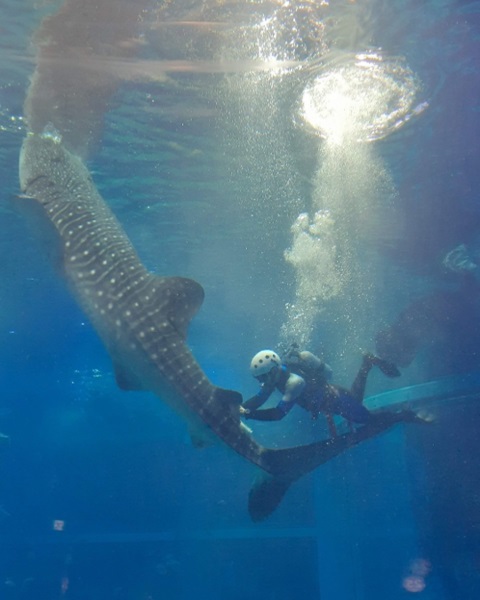Hematology and Plasma Biochemistry in Whale Sharks (Rhincodon typus): Baseline Reference Intervals Based on Captivity Status, Blood Sampling Sites, and Handling Methods
This study established reference intervals for hematological and plasma biochemical parameters in captive and wild whale sharks (Rhincodon typus). Blood samples were collected from the caudal vein (CV) and dorsal cutaneous vein (DCV) of 30 wild individuals and 24 captive individuals between 2007 and 2023. Comparative analyses examined the effects of captivity status, blood sampling site, and handling methods. Significant differences were observed in 12 of 29 parameters between wild and captive sharks, with wild individuals exhibiting lower triglyceride levels, likely due to nutritional deficiencies associated with long-distance migrations. Comparisons of sampling sites revealed significant differences in 11 parameters, with CV-derived values generally higher than those from the DCV. Handling methods affected eight parameters, with notable changes in stress-related markers such as aspartate aminotransferase (AST) and creatine phosphokinase (CPK). These findings provide reference values that contribute to the health management of captive whale sharks and the conservation of wild populations.

Blood sampling from a trained whale shark (Rhincodon typus).
Read the full article, here

